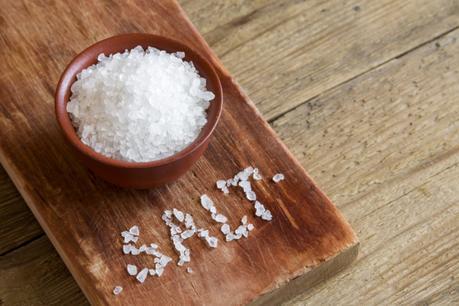
Is salt addictive? I get asked this question all the time because I wrote a book covering this topic called The Salt Fix. All of us love salt. We need it in order to live. However, salt is constantly demonized for being mildly addictive similar to the effects of caffeine. So is it true?
The answer is resounding no. Salt is not addictive. You see our bodies control our intake of salt just like our thirst controls our intake of water. This is known as our salt hunger. The reason why our bodies control our salt intake is because salt levels in the body control water in our body. In other words, if our bodies couldn't control our intake of salt we wouldn't have survived as a species for very long.
The salt set point
And almost all animals have a hunger for salt. In fact, salt hunger evolved over 100 million years ago. Our salt hunger helps us to maintain something called a " salt set point " in our body. That set point is where our body is under the least amount of stress to help us achieve ideal health and longevity. And this set point appears to sit at a salt intake of around 8 to 10 grams per day, which is the exact amount most humans around the globe generally tend to consume (unless they are consciously trying to follow the low-salt guidelines).
When animals are given free access to salt they consume identical amounts of salt as humans when matched for their weight. This again tells that salt hunger, not addiction, drives salt consumption. In fact, when animals and humans are depleted of salt, their salt hunger kicks in telling them to seek it out and eat more of it to replace what has been lost. And this has been known for decades.
The first roads in the United States were from animal trails going to salt licks. In fact, Buffalo, New York, which is where I am originally from, is named after the great salt lick that the buffalo would travel to. Our salt hunger continues to try and bring out internal salty sea back in balance and it works together with our thirst for water to do this.
Salt is unlike any of the other four tastes. If you eat too much salt your salt taste receptors will " flip" providing you with an aversion signal telling you that salt is now too salty. This doesn't happen with our sweet taste receptors, they don't "flip" telling us that sweet foods are now too sweet. If they did many of us might be a lot healthier. Indeed, sugar, not salt, is the likely addictive white crystal.
Low-sodium diets and salt addiction
There may be one special scenario where salt may become addictive. And that could possibly occur if pregnant mothers become salt depleted. This may signal to the fetus that the environment around them is insufficient in salt causing an over-activation in their salt hunger. This "salt addiction" may even carry over into adulthood. Ironically, pregnant women are more likely to become salt depleted when following the low-salt advice. That's right, the low-salt advice may actually lead to salt addiction. However, consuming the salt your body is telling you to consume may prevent this. What a twist of fate!
And as I cover in my book, The Salt Fix, low-salt diets may even predispose to sugar and drug addiction. This is because when we become depleted in salt the brain's reward system becomes hyperactivated. This is how our body knows to seek out more salt and consume more of it when we are deficient. Unfortunately, hyperpalatable substances, such as sugar, can "hijack" this overactived reward system potentially making sugar even more addictive. This also applies to certain controlled substances and drugs of addiction. And if you didn't already have enough reasons to question the low-salt advice you can now add sugar/drug addiction to your checklist of possible unintended consequences.
So you should feel good about giving into your salt hunger as it's telling you when you need more salt. Salt is not addictive. However, the other white crystal, sugar, sure fits the definition.
-
Dr. James DiNicolantonio

